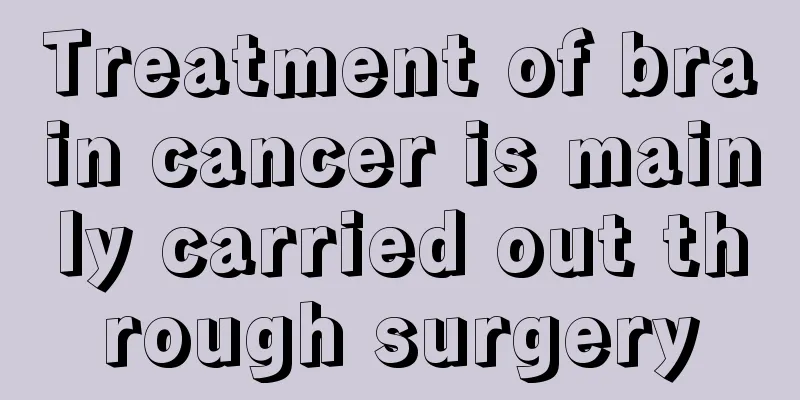Is pain in the left posterior shoulder blade caused by lung cancer?

|
Lung cancer is a serious disease that occurs in the lungs. This disease usually occurs in the middle-aged and elderly. After the disease occurs, it will bring many adverse symptoms. It is recommended to actively clarify the condition after discovering the symptoms and take corresponding measures. Many people think that pain in the left posterior shoulder blade is lung cancer, is it true? Let's take a look. Pain in the left posterior shoulder blade may be caused by lung cancer, but it is very unscientific to rely on this symptom alone. Because lung cancer patients have other symptoms besides pain in the left posterior shoulder blade, among which the more common and typical ones are cough, hemoptysis, chest tightness, asthma, dyspnea, etc. It is recommended to go to the hospital for examination and judgment as soon as possible after discovering these symptoms, so as to quickly clarify the condition. How to diagnose lung cancer: 1. In addition to judging lung cancer through symptoms, some other examination methods can also be used, among which the most commonly used is chest X-ray examination. This examination measure can help patients understand the location and size of the cancer, but it can also clarify the invasion of the disease to adjacent parts. It is a common means of early detection of lung cancer. 2. Computed tomography can also be used to determine lung cancer. This examination method is widely used in clinical practice and is an important means of diagnosing lung cancer. Through the examination, we can carefully understand the specific situation of lung cancer, with a high accuracy rate, which can make subsequent treatment more convenient. However, the cost of this examination method is relatively high, and economic conditions must be considered before using it. Pain in the left posterior shoulder blade may be lung cancer, but it can only be confirmed through examination. After the condition is confirmed, it should be taken seriously and treated actively and correctly. Local resection, extended resection and thoracotomy can be used. After the operation, rest more, maintain a good emotional state, pay attention to dietary nutritional supplements, and regularly check the recovery of the disease. |
<<: How to check after breast cancer surgery
>>: Can cerebral ischemic lesions lead to brain cancer?
Recommend
At what age do children grow all their teeth?
The growth and development of the baby is of great...
How to prevent gastric cancer recurrence after surgery? Do these six things
After gastric cancer surgery, you must pay attent...
Is the number of ovulations related to the incidence of ovarian cancer?
The pathogenesis of ovarian cancer is not yet ful...
What are the symptoms of gastric bleeding
Gastric bleeding is what people often call gastro...
How to treat abscesses on the neck?
A pustule is a pustule formed on the surface of t...
How to remove fishy smell at home
Fish will inevitably have a fishy smell, but this...
What is the difference between flower crab and swimming crab
Flower crabs and swimming crabs are both relative...
How to arrange diet after thyroid cancer surgery
How should the diet be arranged after thyroid can...
Are you still eating leftover food? You must not eat these overnight dishes
Many people are tired of the boxed lunches in res...
What can elderly patients with pneumonia eat
For the elderly, as they age, their body resistan...
How to use medicine and diet to treat gastroenteritis?
The gastrointestinal tract is a very important or...
What should I do if the back of my neck gets tanned
Sun protection in summer is also very important, ...
Can nasopharyngeal cancer cause itchy ears?
Can nasopharyngeal cancer cause itchy ears? 1. Na...
How to effectively treat negative blocking antibodies
If the blocking antibody is negative, the most co...
Can I still exercise if I have sore muscles? How to solve it?
Muscle soreness is a common symptom of muscle abn...









